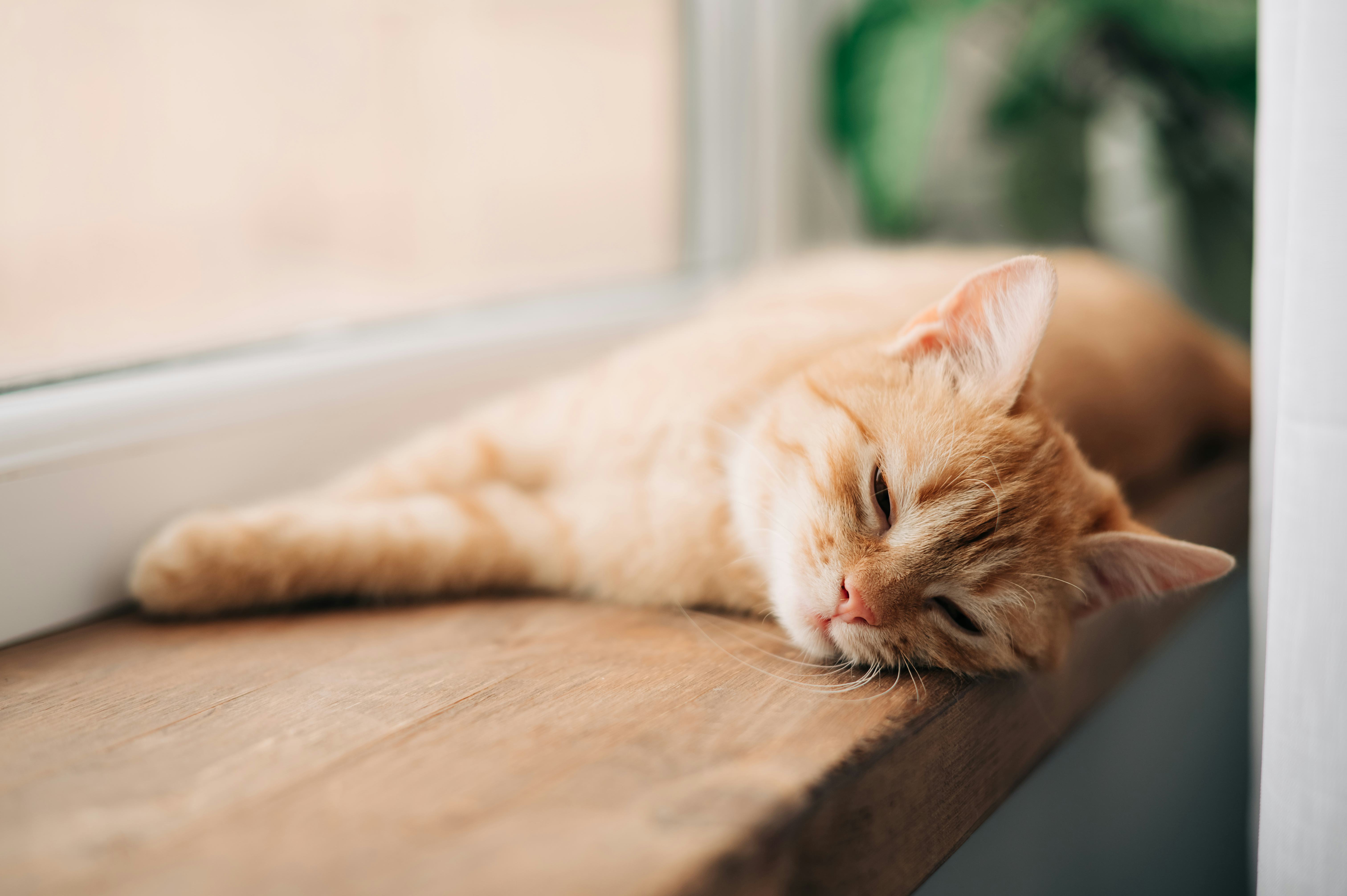
If you have a cat, it’s almost guaranteed you’ve seen it basking in a puddle of sunshine. Indeed, cats love a little extra heat, but does that change in the summer? Do you need to keep the air conditioning running for a cat that loves the heat? Here’s what you need to know to keep your furry friend safe and comfortable.
If you have a healthy, shorthair cat that enjoys warmth, then you’re probably good to leave them in an uncooled home for a day, according to Maria Verbrugge, a veterinarian at the University of Wisconsin-Madison School of Veterinary Medicine. “It depends on the cat, but they tend to like warmth,” she tells Inverse. Vebrugge says that while humans and dogs typically are more comfortable in the 70s, some cats can thrive in the 80s. However, she says she’s more concerned about longhair cats and those with underlying health conditions, like heart disease or seizure disorder, for their risk of overheating.
A love for heat is programmed into cats’ DNA, and they tend to find heat comforting, psychologically. They’re also good at finding what they need in a pinch. “Cats can be amazingly adaptable,” Verbrugge says. She notes that they’re “often good at finding warm places to hide when it's cold, and cool places to hang out when it's hot.”
How your cat fares in an uncooled home also depends on how chilly you typically like to keep it. Verbrugge says that a home might feel uncomfortably warm if it’s more than 20 degrees warmer than a cat is used to. If you prefer it chilly when you’re at home, it’s likely your cat has also acclimated to that.
Of course, it depends on how hot it is. If your area is going through a heat wave and it feels unbearable to be indoors without cooling, then you might want to consider putting on the air conditioner for your cat.
Just like any other animal, cats run the risk of suffering from the life-threatening condition of heat stroke if confined to an enclosed space. For example, Verbrugge says if a cat is trapped inside a greenhouse or a hot car, then it’s unable to cool itself down.
One telltale sign of overheating is panting. Unlike dogs, cats rarely pant, so if you see your kitty’s tongue hanging out, it’s best to take action immediately to help them cool down. “If they do get very hot, they're not as good at cooling off quickly as humans are,” Verbrugge says.
No matter the weather, it’s imperative to leave plenty of fresh water available for your kitty, Verbrugge says. Drinking water can help your cat cool down when it’s hot.
In extreme heat stress, cats might exhibit signs of weakness or even collapse. Cats might also let you know that they’re trying to cool off by spreading out on hard surfaces like wood or linoleum floors, according to Verbrugge, though this display isn’t a call to action. “I wouldn't find this behavior alarming, but it does start to communicate that they are feeling less comfortable,” she says.
Lounging in the sun like a cat sounds like a wonderful summertime activity, but just beware that you’re not letting your little friend overheat. A day without air conditioning can be okay for healthy, shorthair friends, but make sure you know at what temperature your cat is typically comfortable.







